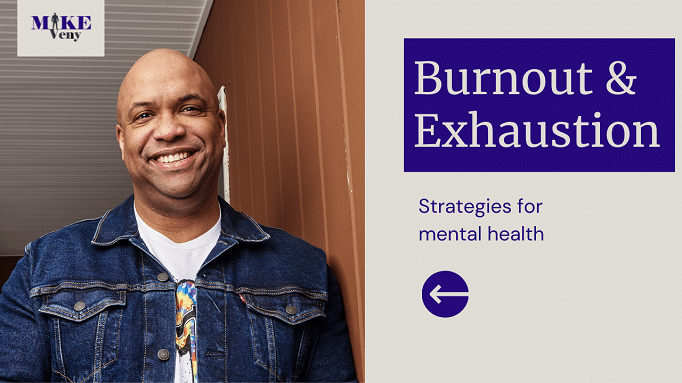
Hey there, school administrator… I see you. 2020 has brought you challenges that you never could have imagined before. Not only were you faced with figuring out how to quickly switch to remote learning to end the ’19-’20 school year, the pandemic didn’t blow over during the summer like we all so badly wanted it to. Now the 2020-2021 school year is starting and you’re in a position where you probably feel like you just can’t win.
If you open your school and bring back your staff and students, you’re being judged because people think you don’t care about the health and safety of everyone involved. If you open your school with virtual learning, people think you’re allowing politics and fear to run the school and allowing the education of the students to suffer for it.
You have some teachers who want to be teaching in person. Then there are the teachers who are terrified if you make them be around students. And let’s not even get started right now on all of the concerns of the parents.
If you stick with virtual learning and the COVID numbers in your area don’t get bad, there will be people who will think that you made the wrong decision. But if you open the doors and a few kids start testing positive, there will be people who will think you made the wrong decision.
Let’s be honest, you probably feel like you’re damned if you do and damned if you don’t.
As school administrators, you’re facing pressure from all sides. Not only are you trying to weigh the safety risks involved for your staff and teachers, you’re trying to address the concerns of all the parents.
How do you balance making sure the children get the proper education while still being safe in the middle of a pandemic?
Everyone wants an answer, and yet no one really knows what the right answer is. There are skilled and trained medical professionals on both sides of the spectrum. There’s evidence to support multiple theories. And you’re left to make the decisions that impact so many.
And not only are you facing all of that, the school year is starting after months of racial unrest around the country. Students and staff have been exposed to new levels of trauma and anxiety. You may have heightened levels of hatred within your community.
Even small towns that are often untouched by the events that impact larger cities are feeling it this year. It’s the unfortunate reality of the world in 2020.
So, what are you supposed to do as the school year begins?
Ready or not…school is here. Your district may have already made the decision about how to reopen or the first day may have been postponed to see what happens in the next several weeks. As a mental health speaker, I’m not going to try to tell you how to open schools in a pandemic. You have far more training on how to run a school than I do.
But I would like to address the mental health and wellness of your school. My mission is to support people in receiving the gift of emotional wellness, and I believe it’s something that schools need more than ever this year.
With that in mind, here are some tips to guide you as the school year begins.
1. Learn to be OK with not getting it all right
You’re not going to have all the right answers this year. There’s a lack of understanding around COVID for everyone. That means there is a lack of understanding on the right way to move forward.
I’m guessing you didn’t get into this profession for the money. You took this career path because you want to make a difference. You want to improve the educational system and help students receive the best education they can. And you most certainly care about the health and safety of your staff, the students, and their families.
But not everyone is going to see that this year. They’re distracted by their own fear and anxiety. It’s impossible for you to make a decision that pleases everyone. All you can do is do your research, think carefully, and make the best decision with the facts that you’re given.
I know that’s easier said than done, but you can’t carry the weight of the world on your shoulders. You’re not a politician and it isn’t your job to try to please everyone. Just move forward with making the best decisions that you can for your staff and students.
2. Be ready to listen
Teachers are quitting all around the country. I’m sure that isn’t news to you. They’re scared. Some are quitting because they don’t want to be teaching in person right now, and others are quitting because they feel ill-equipped to properly teach students online. And many of the ones who are sticking around have anxiety about how to move forward.
Parents are concerned about the safety of their child or the ability to support their child with remote learning. On top of that, many parents are already under added stress from COVID. They may be out of work and struggling to make ends meet. Or they may be required to return to work and aren’t sure what to do with their children who are going to be remote learning.
Something I’ve noticed this year is that people want to be heard. They want a chance to voice their opinions, anxiety, and fear. And they want to know that someone is listening. It’s true with COVID and it’s true with racism.
You may not have all the right answers. You may not be able to give each teacher, support staff, student, or parent what they want. But you can listen. You can provide them with an opportunity to voice their thoughts and opinions.
Listening to people helps to build trust with them. Don’t make promises you can’t keep. Simply listen and show empathy for all the different perspectives that you hear.
3. Keep in mind that all perspectives are valid
Our opinions and beliefs are shaped by our perspectives. As you listen to the concerns of your staff, students, and parents, you’re going to hear many different perspectives. Remember that one is not more valid than the next.
You may have a teacher on staff with asthma and diabetes. The concerns they have coming back to school may be vastly different than another teacher who doesn’t have these health risks. There may be a student who is being raised by elderly grandparents who are in the “high risk” category for COVID. Or you may have parents concerned about how their child with special needs is going to get the right education through remote learning.
None of those people are wrong in their concerns even though they may have very different opinions. Their perspective is formed by their unique situation and experiences. Do your best to have empathy with each person in their own perspective.
4. Listen to the emotion behind the words
If you’re on social media or if you watch the news, you’ve noticed that people can say mean and hateful things to each other. You most likely work hard to stop student bullying within your school, but adults aren’t playing by the same rules.
There’s a good chance that you’ve received angry messages regarding the reopening of schools. Don’t take them to heart. Remember that some people struggle to put their real emotions and concerns into words, especially appropriate words.
When you’re being confronted in person or through messages by someone who is angry and upset, remain calm. Do your best not to allow the heat of the conversation to play with your emotions. Instead of focusing only on the words they’re saying, listen for the emotion behind it.
I’ve shared in the past about how depression can disguise itself as anger. Fear and anxiety can do the same thing.
When you start to look for the emotion in the conversation, it can help you stay in control of your own emotions. This can help to deescalate the tension in the conversation.
5. Remember, there’s no such thing as over-communicating
You may not know all the answers or the right things to say, but it’s important to communicate what you do know.
I surveyed teachers in preparation for creating this guide to get a feel for how they feel about reopening this fall. Their answers were all across the board, but there was a trend that I noticed. The teachers who felt the most confident in their abilities and the reopening plan are the ones who felt that their administrators were keeping them in the loop and up to date.
Here’s one response from a teacher when asked if they were confident in their ability to address the concerns of students and parents: “Yes because my University has thought through every possible scenario and communicated information daily and weekly.”
Did you catch that? The teacher felt confident because the administration “communicated information daily“.
Right now, with so much uncertainty in the world, you cannot communicate too much. Keep your staff up to date. Communicate with the parents. Communicate with the students. Even if you aren’t sure exactly what to say, let them know that there are no new updates.
Communication is an important part of building trust.
6. Praise your staff
Remember that your teachers and support staff care about the students. While many are concerned about their health and that of their students if school is in person, they are also concerned about the struggle students may have through virtual learning.
This came through in all of the survey responses that I received. The teachers are concerned about making sure the students get the best options. They want the kids to be safe and they want them to receive the best education.
Teachers also chose their occupation because of a passion and desire to make a difference. They aren’t doing it because it’s fun and they get the summers off. They want to make a positive difference in the life of the students.
Whichever way your school opens for the start of the year, remember to praise the teachers for the work they’re doing and the care that they have for the students and families in the community. Let them know that you appreciate what they are doing as they work to adjust to what could be a constantly changing plan over the next few months.
And take it a step further by praising your staff to the community. Sing their praises on social media. Give them credit for any successes that happen during this time. Give your community ideas on how to support and encourage the teachers and staff as the year begins and moves forward.
7. Focus on mental health and emotional wellness
As I mentioned earlier, people are experiencing trauma and anxiety this year. This is true for teachers, parents, and students. Your district has an opportunity to shine during this time by helping the community address their mental health and emotional wellness.
Provide resources to teachers to help them address their own mental health. Provide resources that teachers can share with students to help them do the same. Do the same thing for the families at your school and in the community.
Teachers will not be able to provide students with the best education when they are under high levels of stress and tension. Students will not be able to learn and retain information at the level they normally can when under stress and tension. Parents will have a difficult time supporting their children in their education when they are struggling to handle the trauma they’ve experienced this year.
You, as the school, are in a unique position to help support the community more than ever right now.
One final note for school administrators
Don’t forget to take care of your own mental health and wellness. You are experiencing trauma and stress this year just like everyone else. There is a lot of pressure on you as the school reopens this year. If you are suffering burnout and feeling overwhelmed, you will struggle to support your staff and students in the way they need regardless of how hard you try.
Here are some additional resources that I encourage you to explore:
- Self-paced online course: How to Find Peace in Times of Uncertainty
- How Do We Fix Mental Health in Schools?
- Workplace Mental Health: The Impact of Trauma on Employees and What Your Role is as an Employer
- Tense & Triggered: How to Defuse Conflict in a Year of Pandemic, Politics, and Protests
- Fighting Anxiety in the Midst of the Covid-19 Pandemic: 7 Things You Can Do to Stay Calm
You can also take advantage of the FREE Mental Health Webinar: Transforming Stigma® in the Classroom. Or explore your options for bringing a virtual presentation to your staff and/or students to teach them about self-care, how to deal with anxiety, and be emotionally well during these challenging times by completing the form here.



